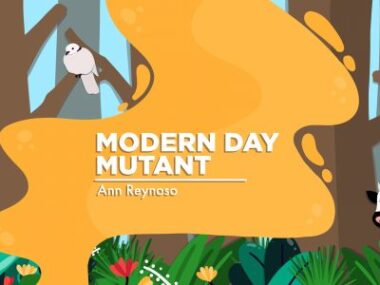How processing grief and managing PF can lead to social isolation
A columnist finds herself withdrawing after the sudden loss of a loved one
Written by |

Grief is one of the more complex emotions we experience. In my practice as a therapist, I regularly support people who are grieving, and I have a variety of therapeutic ways to respond to someone who is processing loss. The most common strategy is to validate grief’s myriad effects on a person, which include anger, sadness, exhaustion, and social isolation.
While most of us tend to associate grief with death, people grieve for many reasons. Regardless of the cause, grief often results in similar emotions and symptoms, and I’ve been trying to keep this in mind lately.
Last month, my family suffered the loss of our matriarch. My grandmother was responsible for organizing family Christmases, helping us make memories at our favorite summer beach house, and starting a family that includes 17 great-grandchildren. As my friends who sent flowers described her, she was a legend.
The grief that has emerged for me as a result of this loss has been substantial and overwhelming. It’s made me reflect on how many of my grieving clients have a desire to self-isolate after the death of a loved one. Many lose interest in socializing or spending time with friends or family. I’ve been experiencing this since the loss of my grandmother, but it’s not an unfamiliar feeling for me.
I’m no stranger to isolation
When I was diagnosed with idiopathic pulmonary fibrosis (IPF) in 2016, I had no intention of isolating myself from my peers. However, as this life-threatening lung disease progressed, it became easier to spend time alone.
Because of my oxygen needs, I am limited in what I can do or how long I can be out of the house, which makes it difficult to keep up with other young adults. I am also immunocompromised as a result of some of the medications I take to manage IPF, so I shy away from crowded events to avoid getting sick.
When my grandmother died, the fact that I didn’t want to see anyone wasn’t that abnormal for me. My friends and family understand that I often self-isolate to protect my health, especially during cold and flu season. But my loved ones recently grew concerned that I was alone, knowing that the sudden loss would have a major emotional impact on me. I just didn’t want to see anyone because I was angry at the world for allowing COVID-19 to take my grandmother from us so abruptly.
Physically, my heart was aching, and I was so tired from crying that my body never felt good in the days after her death. These symptoms were in addition to the chest pain I regularly feel due to IPF. Eventually, though, I realized that letting people help and support me made the physical and emotional pain easier to handle.
While there is no right or wrong way to cope with loss, this experience has helped me as a therapist to better understand how grief can lead to social isolation. For me, grieving while living with IPF was very isolating. While I’m doing better now, it’s still a work in progress.
This experience will inevitably increase my compassion for those seeking therapy. Perhaps there is a lesson here that I can share with my clients: Self-compassion is vital when facing grief.
Note: Pulmonary Fibrosis News is strictly a news and information website about the disease. It does not provide medical advice, diagnosis, or treatment. This content is not intended to be a substitute for professional medical advice, diagnosis, or treatment. Always seek the advice of your physician or other qualified health provider with any questions you may have regarding a medical condition. Never disregard professional medical advice or delay in seeking it because of something you have read on this website. The opinions expressed in this column are not those of Pulmonary Fibrosis News or its parent company, Bionews, and are intended to spark discussion about issues pertaining to pulmonary fibrosis.







Steve Dragoo
Hello friend - yes, grief is rugged and there are more complexities than answers - adding in denial and even bargaining with the force (in my case God). I have used the Ladder Principle with what little knowledge I have on the matter. Basically meet the person where they are emotionally and engage them to trust, bring them where they need/you want them to be. As I have passed the 7th anniversary of this lovely disease, I know all things on this earth die except One. So our (wife and me) spiritual walk is the only stable force we can rely on - and it is not based on feelings. She and I are compelled to help new members in our church(es) with much-needed nurturing.
Also, I keep looking at supplements and am using a combo that helped me more than expected. Last week I walked our 16-step stairs 45 times per day in deliberate exercise - yes I stop for O2 but at 74.5 and other compromising issues, I feel good as James Brown would say...
I can face tomorrow...
Steve
Alan Gould
With God all things are possible. I am into my 6th year of IPF and get support from my wife. Family doesn't understand this disease or church people.